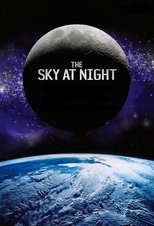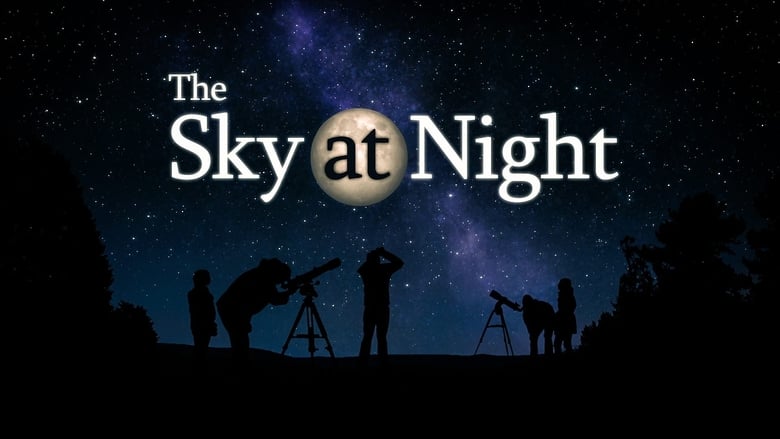
First Aired: April 24th, 1957
Status: Continuing
Genre: News, Documentary
Network: BBC Four
Summary: Your monthly journey through the fascinating world of space and astronomy with the latest thinking on what's out there in space and what you can see in the night sky.
Next Episode:
New episode date is not available for now
Episode Statistics:
# of Episodes: 679
# of Episodes I watched: 0
# of Episodes I haven't watched: 679
Last Episode I watched: -
Episode Summaries
Select Season:
My Season Progress:
0 %
Season 2010
Episode 1: Twinkle Twinkle
Air Date: January 4th, 2010
Summary: January provides the perfect opportunity to observe stars, planets and galaxies.
Sir Patrick Moore takes us on a tour of the winter sky, looking at twinkling 'variable stars' with Dr John Mason, and at planets and galaxies with Pete Lawrence and Paul Abel.
Sir Patrick and Dr Chris Lintott also point out the best objects to observe if you've had a telescope for Christmas.
Episode 2: The Spirit of Mars
Air Date: February 9th, 2010
Summary: Mars is the brightest thing in the sky and is at its closest to Earth for the next four years. With NASA announcing that its Martian rover Spirit is to rove no more on the red planet, there is an interview with Prof Steve Squyres, the principal investigator of the Mars Exploration Rover Mission, about the attempts to get it out of the sand dune which ensnared it in May 2009 and the agonising decision to stop the rescue.
Episode 3: Life
Air Date: March 8th, 2010
Summary: Half a century ago, scientists were speculating about the possibility of planets outside our solar system. Since then over 400 such extra-solar planets have been discovered. Is there anything living on them and if so, is it intelligent? Sir Patrick Moore debates the question of life in the universe with today's planet hunters and astrobiologists, while at the Royal Society Dr Chris Lintott searches for evidence of alien life.
Episode 4: The Sun in Splendour
Air Date: April 7th, 2010
Summary: We can never see our nearest star at night, only by day. Looking at it directly will blind us - because our nearest star is the Sun. Sir Patrick Moore is joined by the Astronomer Royal for Scotland, Professor John Brown and by Dr Chris Davis. They take us on a tour of the Sun, Earth's primary source of energy and without which life would not exist. Pete Lawrence and Paul Abel demonstrate safe ways to look at the Sun from Sir Patrick's observatory in Sussex.
Episode 5: Ring World
Air Date: May 4th, 2010
Summary: Saturn is one of the largest planets and the beautiful system of rings surrounding it makes it the most distinctive in the solar system. But how were the rings formed and what effect do Saturn's many moons have upon them? Sir Patrick Moore is joined by Professor Michele Dougherty and Professor Carl Murray, while Pete Lawrence and Paul Abel demonstrate the best way to observe Saturn during May.
Episode 6: Star Birth
Air Date: June 6th, 2010
Summary: The many star-forming areas of our galaxy are obscured by interstellar dust, but Herschel, a new space telescope, can see these areas in infrared light. Sir Patrick Moore is joined by Professor Derek Ward-Thompson and Dr Chris North to examine the latest stunning images from Herschel.
Episode 7: The Universe from Atlantis
Air Date: July 5th, 2010
Summary: The Space Shuttle Atlantis has returned from its final flight to the International Space Station. With the shuttle fleet soon to be decommissioned, Sir Patrick Moore and Dr Chris Lintott meet the crew of Atlantis to talk about the future of spaceflight, the legacy of the Space Shuttle - and how to prepare to go into space.
Episode 9: Events on Jupiter
Air Date: September 7th, 2010
Summary: In July 2009 a large object crashed into Jupiter, and in May 2010 one of the most prominent features of the planet, the southern equatorial belt, disappeared. But where did it go? Sir Patrick Moore is joined by Dr John Rogers and Dr Leigh Fletcher to discuss the latest events on Jupiter. Pete Lawrence and Paul Abel observe the planet and explain what features can be seen through a telescope.
Episode 10: Light Echoes
Air Date: October 5th, 2010
Summary: Light echoes are reflections of light from distant objects in space. But what do they look like and how can they best be seen? Sir Patrick Moore and his guests Professor Mike Bode and Dr Tim O'Brien explain all.
Chris Lintott helps to construct a new radio telescope in Hampshire while Pete Lawrence and Paul Abel preview what is on view in the October skies.
Episode 11: Ghostly Travellers
Air Date: November 8th, 2010
Summary: Comets are strange and exotic objects, the remnants from dead stars and the birth pangs of our solar system. Only a handful of these ghostly, celestial objects have been seen at close quarters. Sir Patrick Moore discusses NASA's EPOXI mission, which hopes to rendezvous with comet Hartley 2.
Episode 12: The Great Bear
Air Date: December 7th, 2010
Summary: Ursa Major, the Great Bear, is a rich source of galaxies, double and variable stars and the Hubble Deep Field, through which we are able to look back 10 billion years in time. Sir Patrick Moore and his astronomical team give an intimate guide to one of the skies' most recognisable constellations.
Information about series and episodes are provided by TMDB API. If you think that episode information is wrong or missing, please click here to request an update. After your request, update process can take up to 30 minutes.

